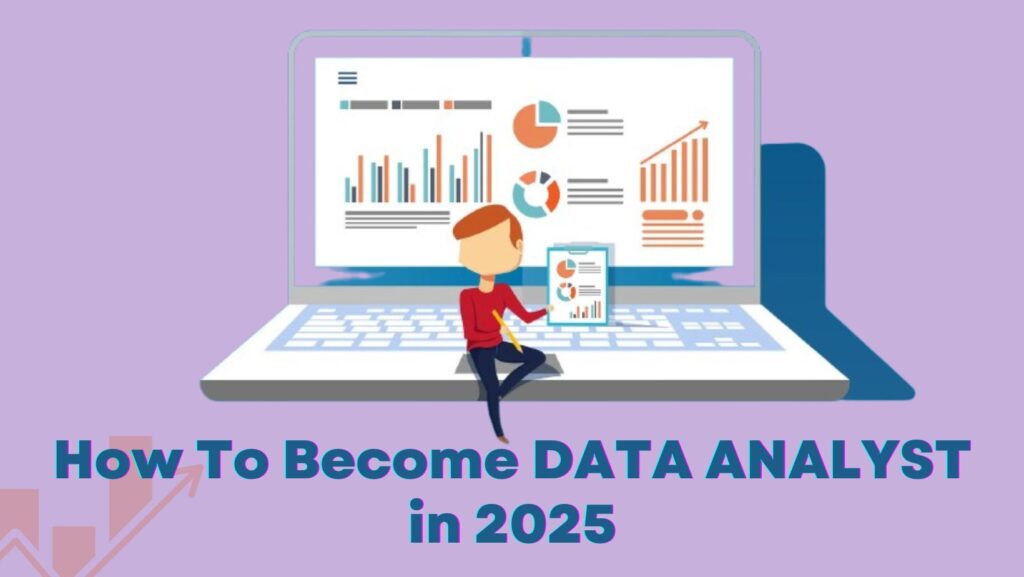
Data analytics is evolving rapidly, with businesses relying more than ever on data-driven insights to make strategic decisions. As we approach 2025, the demand for skilled data analysts continues to grow, making it a promising career path. However, success in this competitive domain requires more than just technical proficiency. It demands analytical thinking, business acumen, and the ability to adapt to emerging trends. This article explores the key skills, tools, and mindset necessary to thrive as a data analyst in 2025.
The Evolving Role of a Data Analyst
Data analysts are no longer just number crunchers. Their role has expanded to include storytelling through data, influencing business decisions, and collaborating with cross-functional teams. With advancements in AI and machine learning, the responsibilities of a data analyst are becoming more sophisticated, requiring continuous learning and adaptability.
Essential Skills for a Data Analyst in 2025
1. Technical Proficiency
To succeed as a data analyst, mastering technical skills is crucial. Some of the most important ones include:
- Programming Languages: Python, R, and SQL remain fundamental for data analysis and manipulation.
- Data Visualization: Proficiency in tools like Tableau, Power BI, and Matplotlib helps present complex data insights effectively.
- Database Management: Understanding relational and non-relational databases (e.g., MySQL, MongoDB) is essential for handling large datasets.
- Cloud Computing: Familiarity with platforms like AWS, Google Cloud, and Azure is increasingly valuable as businesses move towards cloud-based data storage and processing.
2. Statistical and Analytical Thinking
A strong foundation in statistics and probability is necessary for interpreting data accurately. Data analysts must be able to:
- Perform hypothesis testing
- Conduct regression analysis
- Identify patterns and trends in large datasets
3. Business Acumen
Understanding business objectives and industry trends allows data analysts to provide insights that are relevant and actionable. Successful analysts bridge the gap between raw data and business strategy.
4. Communication and Data Storytelling
Translating data insights into compelling narratives is a skill that sets great analysts apart. Clear communication with stakeholders ensures that insights lead to informed decision-making.
5. Adaptability and Continuous Learning
The data landscape is constantly evolving. Keeping up with the latest trends, tools, and methodologies is essential for long-term success in this field.
Must-Know Tools and Technologies for 2025
Data Analytics and BI Tools
- Tableau – For interactive data visualization
- Power BI – Microsoft’s powerful analytics tool
- Google Data Studio – Free tool for reporting and dashboards
Programming and Scripting
- Python – Preferred for data manipulation, automation, and machine learning
- R – Ideal for statistical computing and data visualization
- SQL – Essential for querying databases
Cloud and Big Data Technologies
- Google BigQuery – For handling large-scale data
- Amazon Redshift – Cloud-based data warehousing
- Apache Spark – Big data processing framework
Machine Learning and AI
While not always a requirement, knowledge of machine learning models and AI-driven analytics is increasingly valuable.
Trends Shaping Data Analytics in 2025
1.The Rise of Automated Analytics
Automation is reducing the manual workload for analysts, enabling them to focus on deriving strategic insights rather than data cleaning and preparation.
2. Increased Adoption of AI and Machine Learning
AI-driven analytics is making predictive modeling and data forecasting more accessible, allowing businesses to make more informed decisions.
3. The Shift Toward Real-Time Analytics
Organizations are increasingly relying on real-time data processing to respond swiftly to market changes, making real-time analytics an essential skill for future data analysts.
4. Focus on Data Privacy and Security
With stricter data regulations, analysts need to be well-versed in compliance laws such as GDPR and CCPA to ensure data is handled responsibly.
Building a Successful Career as a Data Analyst
1.Enroll in a Reputable Training Program
A well-structured training program can provide the foundation needed to build a successful career in data analytics. Many aspiring analysts look for institutions that offer hands-on training and industry exposure. Whether you are in the early stages of your career or looking to upskill, institutions that provide data analytics training in Delhi, Noida, Gurgaon, Pune, and other parts of India help professionals stay competitive in this fast-evolving field.
2. Gain Practical Experience
Hands-on experience with real-world projects is crucial. Consider working on Kaggle competitions, contributing to open-source projects, or taking on freelance assignments to build a strong portfolio.
3. Stay Updated with Industry Trends
Subscribing to industry blogs, attending webinars, and joining data analytics communities can keep you informed about emerging trends and best practices.
4. Obtain Relevant Certifications
Certifications such as Google Data Analytics, Microsoft Certified: Data Analyst Associate, and AWS Certified Data Analytics can enhance credibility and improve job prospects.
Conclusion
Succeeding as a data analyst in 2025 requires a blend of technical skills, business acumen, and adaptability to emerging technologies. With the growing reliance on data-driven decision-making, data analysts who stay updated with industry trends and continuously refine their skills will be in high demand. By investing in the right training and practical experience, aspiring analysts can build a rewarding career in this dynamic field.



